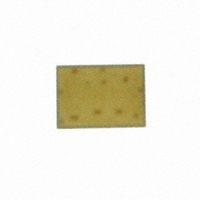AMMC-5620-W10 Avago Technologies US Inc., AMMC-5620-W10 Datasheet - Page 6

AMMC-5620-W10
Manufacturer Part Number
AMMC-5620-W10
Description
IC MMIC AMP GAAS HI GAIN 6-20GHZ
Manufacturer
Avago Technologies US Inc.
Type
Gain Amplifierr
Datasheet
1.AMMC-5620-W10.pdf
(8 pages)
Specifications of AMMC-5620-W10
Function
Amplifier
Frequency Range
6GHz To 20GHz
Noise Figure Typ
4.2dB
Power Dissipation Pd
1W
Supply Current
105mA
Supply Voltage Range
5V
Frequency Max
20GHz
Gain
19dB
Rf Type
General Purpose
Number Of Channels
1
Frequency (max)
20GHz
Output Power
15@20000MHzdBm
Power Supply Requirement
Single
Single Supply Voltage (typ)
5V
Package Type
Chip
Dual Supply Voltage (min)
Not RequiredV
Dual Supply Voltage (typ)
Not RequiredV
Dual Supply Voltage (max)
Not RequiredV
Lead Free Status / RoHS Status
Lead free / RoHS Compliant
Lead Free Status / RoHS Status
Lead free / RoHS Compliant, Lead free / RoHS Compliant
Other names
516-1849
AMMC-5620-W10
AMMC-5620-W10
Available stocks
Company
Part Number
Manufacturer
Quantity
Price
Company:
Part Number:
AMMC-5620-W10
Manufacturer:
Avago Technologies
Quantity:
135
Part Number:
AMMC-5620-W10
Manufacturer:
AVAGO/安华高
Quantity:
20 000
Biasing and Operation
The AMMC-5620 is normally biased with a single positive
drain supply connected to the VDD bond pads shown in
Figure 19. The recommended supply voltage is 5 V, which
results in IDD = 95 mA (typical).
No ground wires are required because all ground con-
nections are made with plated through-holes to the
backside of the device.
Refer the Absolute Maximum Ratings table for allowed
DC and thermal conditions.
6
Assembly Techniques
The backside of the AMMC-5620 chip is RF ground. For
microstripline applications, the chip should be attached
directly to the ground plane (e.g., circuit carrier or heat-
sink) using electrically conductive epoxy
For best performance, the topside of the MMIC should be
brought up to the same height as the circuit surrounding
it. This can be accomplished by mounting a gold plated
metal shim (same length and width as the MMIC) under
the chip, which is of the correct thickness to make the
chip and adjacent circuit coplanar.
The amount of epoxy used for chip and or shim at-
tachment should be just enough to provide a thin fillet
around the bottom perimeter of the chip or shim. The
ground plane should be free of any residue that may
jeopardize electrical or mechanical attachment.
The location of the RF bond pads is shown in Figure
20. Note that all the RF input and output ports are in a
Ground-Signal-Ground configuration.
RF connections should be kept as short as reasonable to
minimize performance degradation due to undesirable
series inductance. A single bond wire is sufficient for sig-
nal connections, however double-bonding with 0.7 mil
gold wire or the use of gold mesh is recommended for
best performance, especially near the high end of the
frequency range.
Thermosonic wedge bonding is the preferred method
for wire attachment to the bond pads. Gold mesh can
be attached using a 2 mil round tracking tool and a tool
force of approximately 22 grams with an ultrasonic pow-
er of roughly 55 dB for a duration of 76 ± 8 mS. A guided
wedge at an ultrasonic power level of 64 dB can be used
for the 0.7 mil wire. The recommended wire bond stage
temperature is 150
Caution should be taken to not exceed the Absolute
Maximum Rating for assembly temperature and time.
The chip is 100 µm thick and should be handled with
care. This MMIC has exposed air bridges on the top
surface and should be handled by the edges or with a
custom collet (do not pick up die with vacuum on die
center.)
This MMIC is also static sensitive and ESD handling pre-
cautions should be taken.
Notes:
1. Ablebond 84-1 LM1 silver epoxy is recommended.
2. Eutectic attach is not recommended and may jeopardize reliability
of the device.
±
2
°
C.
[1,2]
.




















